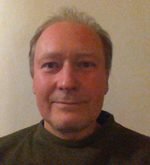In this conversation, we explore dissociation and embodiment. It helps to think of dissociation as a natural “skill” that is necessary for us to be able to multitask – e.g. in such simple things as walking whilst not paying attention to our legs. In order for that dissociation to not become semi-permanent, we should naturally cultivate a positive relationship to the health in our bodies. Constant attention to problem solving and only focussing on what is “wrong” sets us up to be more likely to lose coherence. This has important implications for both psychological and physiological/physical health.
Podcast: Download (11.5MB)

Andrew Cook: I originally trained as a mining engineer – and then re-trained as a hydrogeologist. After some time in a research post, I worked in rural water development projects in deserts (including 2 years on the fringes of the Kalahari), and eventually specialised in the hydrology of wetland nature reserves. Parallel to this, from about 1987, I became interested in complementary therapies, and qualified as a Craniosacral Therapy practitioner in 1997. Other influences include about 20 years taiji/qigong practice, and an enduring love of nature. I see the human body in the context of the natural world in which we evolved, and to which we are inextricably linked. I now live and work as a Craniosacral Therapist in Norfolk, UK. See: http://www.body-mind.co.uk/
Published March 2016